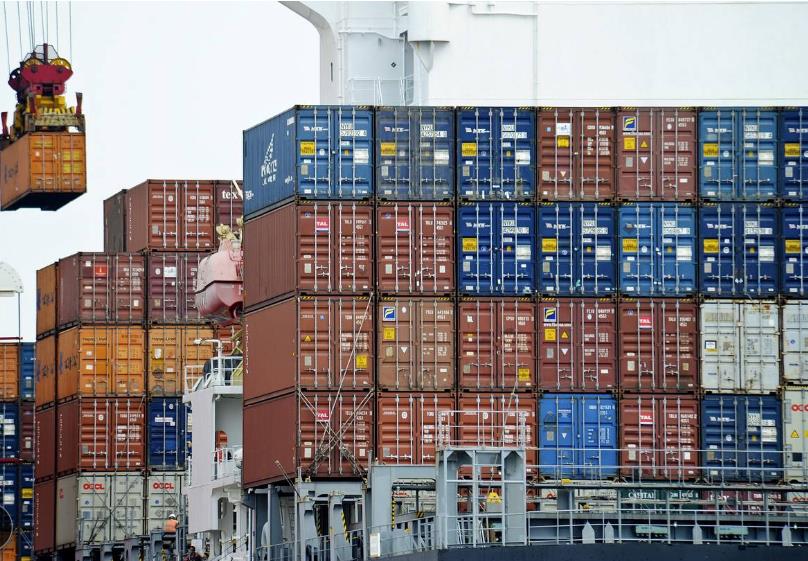Media Report

- The Wall Street Journal reports: "China's 15-year anniversary as a member of the World Trade Organization on Sunday threatens to trigger a clash with growing forces in the West that cast Beijing as an abuser of open global markets...China has leveraged the open markets the organization fosters to lift millions of people from poverty and catapult itself to become the world's No. 2 economy...'China wanted the advantages without meeting its obligations, and trade won't work when it's a one-way street like that,' said Rep. Sander Levin, the top Democrat on the House committee that overseas trade. 'They went in with full knowledge and essentially began thumbing their nose.'...Changing China's market-economy status is dependent on individual countries declaring that they are changing the way they handle antidumping and other trade cases—something the Obama administration isn't ready to do."
- Foreign Affairs comments: "When it rains, it pours. As the Great Recession, eurozone crisis, stalled trade deals, increased conflict between Russia and the West, electoral revolts against European political elites, and finally Brexit followed the 2008 financial meltdown, it seemed clear that globalization was running out of steam. Yet few expected that its opponents would claim the top prize—the White House—and so soon. World powers are now scrambling to react to Donald Trump's paradigm-shifting election as president of the United States...Yet the feelings of perhaps the most consequential power—China—remain somewhat unclear...It better hurry. In the new era ushered in by Trump's victory, the Chinese have the most to gain—or to lose. And as the world's second-largest economy and its largest trading nation, China's response could mean the difference between prosperity and stagnation, and even war and peace, around the world."
- The Guardian reports: "Chinese authorities must intensify ideological controls on academia and turn universities into Communist party "strongholds", President Xi Jinping has declared in a major address. 'Higher education ... must adhere to correct political orientation,' Xi said in a high-profile speech to top party leaders and university chiefs that was delivered at a two-day congress on 'ideological and political work' in Beijing...Xi, a populist strongman who recently reaffirmed his political authority by being declared the party's 'core leader', said teachers needed to be both 'disseminators of advanced ideology' and 'staunch supporters of [party] governance'. Echoing a 1932 speech by Joseph Stalin the Chinese president told his audience teachers were 'engineers of the human soul' whose 'sacred mission' was to help students 'improve in ideological quality, political awareness, moral characteristics and humanistic quality'...Qiao, one of the victims of the crackdown on academia, said Chinese students had long had 'socialist values' drilled into them by teachers. 'They're already used to it.' These days, however, the greatest influence on China's youth was not socialism but social media, the scholar added."
Calendar
- 2016-12-08 Trump’s Chinese Currency Manipulation
- 2016-12-07 Trump picks Iowa Gov. Terry Branstad — a ‘friend’ of China’s leader — as Beijing ambassador
- 2016-12-06 China Seeks ‘Strategic Composure’ in Trump Era of Diplomacy
- 2016-12-05 Trump, Taiwan and China: The Controversy, Explained
- 2016-12-04 Trump Camp Scrambles To Defend Diplomatic Blunder Over China And Taiwan
- 2016-12-02 China Seizes Opening in U.S. Backyard as Trump Upends Policy
- 2016-12-01 China says new North Korea sanctions not meant to harm 'normal' trade
- 2016-11-30 China military says it's seriously concerned by Japan-South Korea pact
- 2016-11-29 China to clamp down on outbound M&A in war on capital flight
- 2016-11-28 Antibiotic-resistance genes in Beijing’s smog are nothing to worry about, Chinese officials say
News
- The Wall Street Journal China Faces Off Against World on Open Global Markets
- The Guardian China universities must become Communist party 'strongholds', says Xi Jinping
- Reuters EU launches new investigation into Chinese steel imports
- The New York Times 2 Ex-Chinese Diplomats Charged With Running Forced-Labor Ring
- The Wall Street Journal Chinese Consumer Inflation Heats Up
- Reuters China criticizes U.S. for blocking German Aixtron deal
- Bloomberg Trump Says China Will Have to Play by Rules Under New Ambassador
- The Washington Post Hong Kong leader Leung won't seek another term, cites family
- The New York Times Iowa Exports Soybeans to China, So Why Not a Whole Farm?
- Bloomberg Casino Stocks Plunge on Report of Macau ATM Withdrawal Cap
- The Washington Post Reports: Tibetan Buddhist monk self-immolates in west China
- The Financial Times China takes aim at South Korea's Lotte after missile move
- NPR Slam Dunk: Michael Jordan Wins Trademark Dispute In China
Commentary
- Foreign Affairs The End of Globalism
- The Wall Street Journal 5 Things About China and World Trade
- Fortune Donald Trump Now Says the U.S.-China Relationship Must Improve
- Barron's Macau Gaming: What's The Impact As China Caps ATM Withdrawal?
- The Diplomat The British Are Coming… To the South China Sea
- Foreign Policy I Think That Chinese Official Really Liked Me!
- Quartz Apple just invested in China's largest wind-turbine maker to power its supply chain
